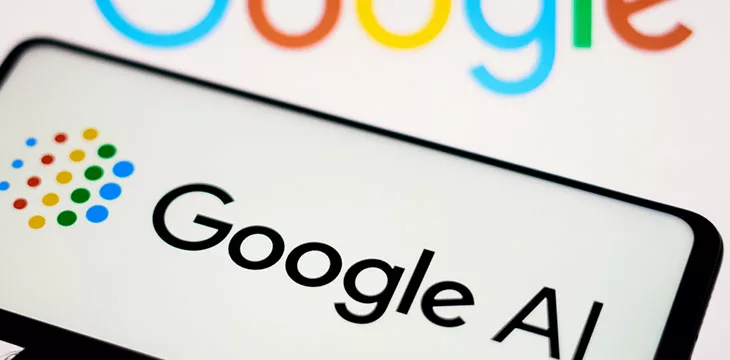|
Getting your Trinity Audio player ready...
|
Virtual assistant software application Google Assistant is set to integrate generative artificial intelligence (AI) chatbot Bard into its offering for billions of users around the globe.
Google (NASDAQ: GOOGL) made the announcement on X (formerly called Twitter), stating that the new integration will push the limits of its Assistant. Dubbed Assistant With Bard, Google’s reveal did not disclose a potential launch date but hinted at advanced functionalities for users.
In late 2022, Google launched Bard as a generative AI chatbot to rival OpenAI’s ChatGPT as both firms pulled clear of the competition. As a large language model (LLM), Bard allows users to generate texts, perform routine tasks, and solve complex mathematical problems.
The incoming integration of Bard and Google Assistant will bring the advanced functionalities of Bard to Google Home and mobile devices – including iOS and Android. Launched in 2016, Google Assistant offered users basic AI features with subsequent improvements, allowing the tool to engage in two-way interactions.
Assistant With Bard will push previously known limits, with analysts expecting the tool to be able to access users’ emails to summarize the content of messages. The tool is expected to be able to perform other advanced tasks such as planning vacations, sending emails, and composing text messages.
The integration will allow the Assistant to access the web and summarize web pages while differentiating between elements that are mere advertisements or designs.
Aside from the typical input method of speaking to the Assistant, the new integration will allow users to interact with the tool via images. According to Google, users will be allowed to upload images with the Assistant able to generate captions for the images.
Other functionalities include an upgrade in voice dictation, allowing users to speak in a relaxed and natural tone to the Assistant. Traditionally, users of voice assistants will have to interact with the tool in “robotic” speech, but it appears the tool will be able to distinguish between natural pauses in speech and actual commands.
Google has been integrating AI into its products, launching generative AI features for Search, and rolling out an anti-money laundering tool using machine learning. The tech giant is training a new generative AI model that reportedly surpasses ChatGPT’s functionalities.
Innovation and safe usage: Two sides of Google’s AI coin
As it proceeds with AI innovation, Google is also making significant plays at ensuring safe usage of the technology. On its own accord, Google unveiled an invisible watermark tool as a solution to the lingering challenge of deep fakes while pushing for political advertisers to label AI-generated content to prevent misinformation.
The firm pledged $20 million to support responsible AI initiatives, particularly those revolving around the impact of AI in the spheres of labor, economy, security, productivity, and emerging technologies.
“Getting AI rights will take more than any one company alone,” said Google.org Director Brigitte Hoyer Gosselink. “We hope the Digital Futures Project and this fund will support many others across academia and civil society to advance independent research on AI that helps this transformational technology benefit everyone.”
In order for artificial intelligence (AI) to work right within the law and thrive in the face of growing challenges, it needs to integrate an enterprise blockchain system that ensures data input quality and ownership—allowing it to keep data safe while also guaranteeing the immutability of data. Check out CoinGeek’s coverage on this emerging tech to learn more why Enterprise blockchain will be the backbone of AI.
Watch: AI is for ‘augmenting’ not replacing the workforce

 02-25-2026
02-25-2026 




